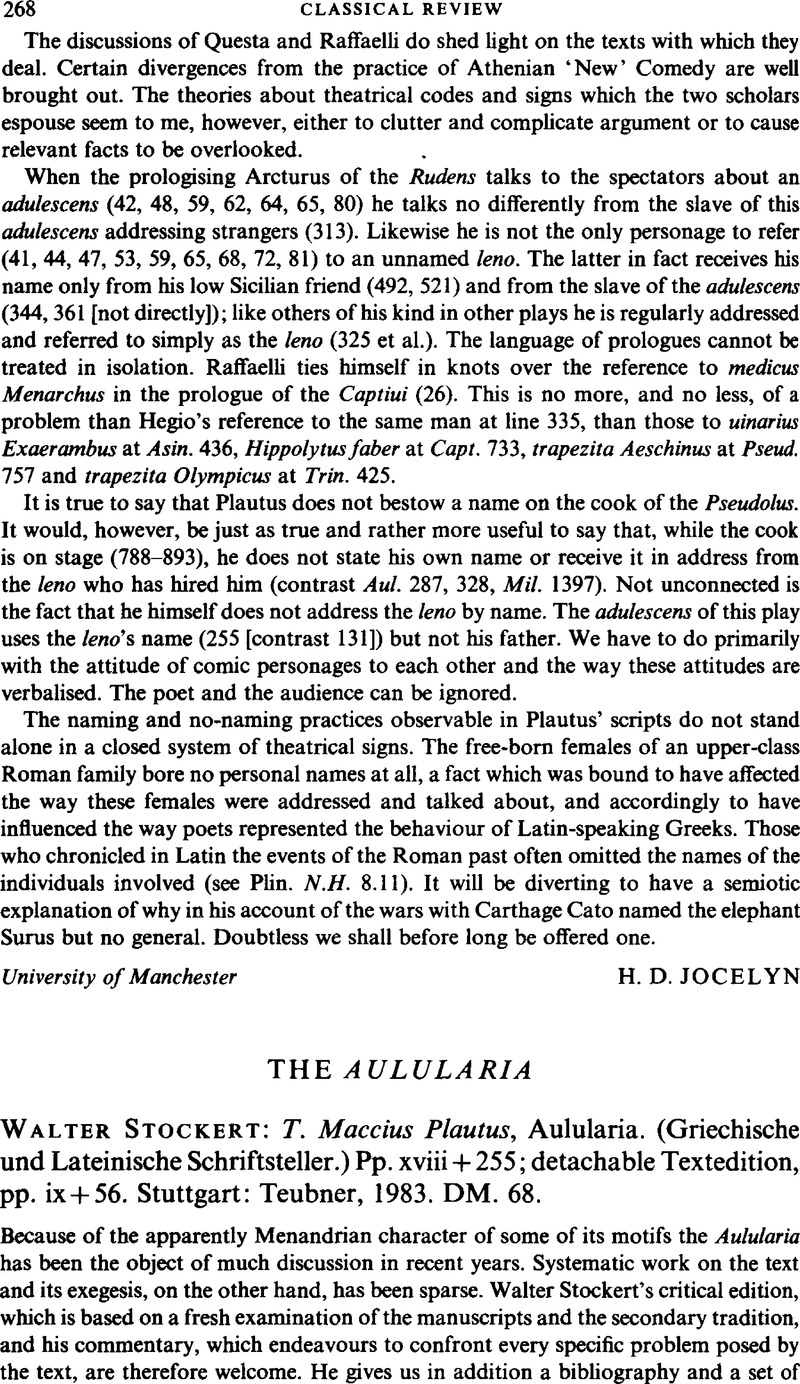No CrossRef data available.
Published online by Cambridge University Press: 16 February 2009

1 S. leaves Goetz's references to the Querolus imitations (giving Ranstrand's page numbers) but dispenses with those to the imitations of Apuleius and Ausonius. There was much in fact to add here.
2 In his school commentary (Turin, 1978) Questa declares the verse ‘metricamente molto incerto e forse corrotto come testo’.
3 It is unclear whether S. argues for treating the -u- in manubrium as long or for dividing the consonant cluster -br-. Certainly the treatment of ludibrium and opprobrium in classical hexameter verse has no bearing on comic practice.
4 Milites speculation emittere does not occur in recorded Latin, nor, given the regular use of emittere, was it likely to have occurred. Seruum emittere (Ter. Phorm. 830, Ad. 976) probably lies behind Plautus' phrase.
5 The speaker rather imagines cattle-prods sticking out of the slave like ears of corn in a ripening field.
6 Not ‘erst wiederab Livius’. See Bell. Afr. 71.1. The restriction of the compound to history and biography in classical Latin required noting.
7 A careful reading of Fraenkel, Pl. im Pl. 209–11 (= Elementi 199–201) would have made S. avoid the term ‘epic’.
8 On the difference in tone between imperium erile and fixed phrases like erilis filius et sim. see Löfstedt, Syntactica i. 116.
9 The aes militare of Poen. 1286 was something rather different.
10 For the importance among Athenians about consultation before a marriage cf. Menander, Asp. 174–80.
11 S. misinterprets grossly Cicero's joke about diuisio at Fam. 9.22.4.
12 One could here at least as well invoke the Athenian sport of cock-fighting.
13 The doubts would have extended to 401–2. S. is wrong to say in his note on 400 that Pliny makes the occurrence of artopta the reason for the athetesis.
14 Cf. Goetz, G. in Schöll, F., Goetz, G., Löwe, G., Analecta Plautina (Leipzig, 1877), p. 80 n. 13Google Scholar, Corpus Glossariorum Latinorum I (Leipzig, 1923), p. 211.
15 A vague agnosticism is expressed at p. 1 n. 2 (cf. Textedition, p. iv n. 10). C. Reblin's dissertation ought to have been mentioned as well as H. Caesar's.
16 Lindsay, , Nonius Marcellus' Dictionary of Republican Latin, pp. 33–34Google Scholar, explains the situation at pp. 541.25–30 and 549.26–9 otherwise.